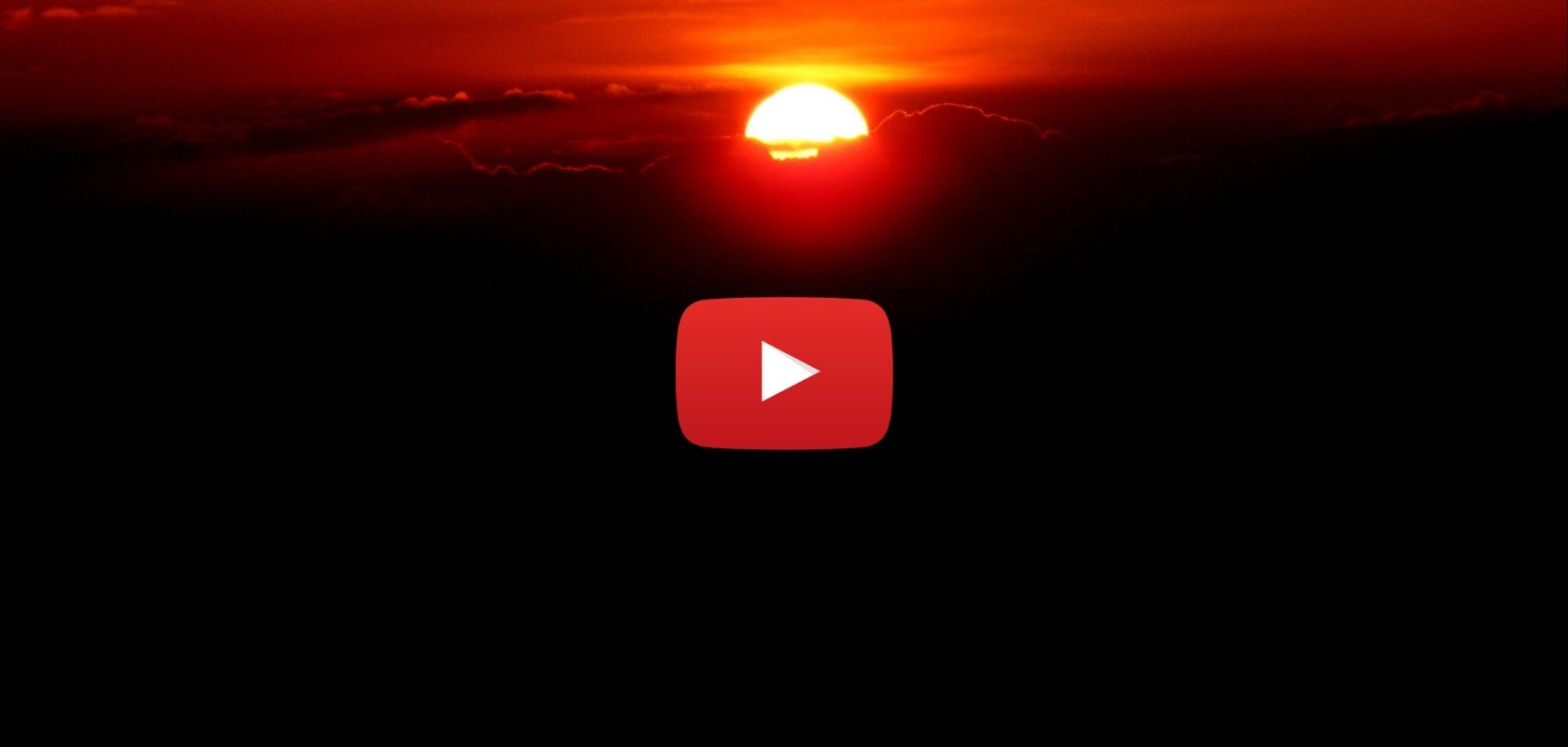2019 has been a rough year for YouTube content creators, many of whom have had to contend with a range of problems Google’s giant video platform has been unceremoniously throwing their way.
Founded in 2005 and acquired by Google a year later, YouTube has grown not only to dominate the video-sharing market in most parts of the world thanks to the homegrown creator talent who have been given a chance to earn a living on the platform. But with a string of decisions over the past several years, and many issues coming to a head this year, that partnership seems to be steadily dissolving.
It isn’t that YouTubers are leaving the platform in droves – but the feeling is that they very much would be doing that if only they believed they had any other place to go.
Creators feel unappreciated and unprotected on a site they helped build, with YouTube often pulling the rug from under them by introducing new rules often to satisfy outside forces. Many of the changes threaten to fundamentally change the nature of the platform – and what made it appealing in the first place.
2019 has seen some endemic issues that have persisted for years, like YouTube’s propensity to “delegate” problems, something obvious in the way it handles DMCA takedown notice from rights holders and copyright trolls alike, essentially leaving creators to deal with them and suffer monetary consequences.
This year, a deal YouTube struck with Federal Trade Commission for violations of the Child Online Privacy Protection Act (COPPA) follows in the same format – by and large, leaving creators to figure out for themselves how to adjust to the new rules and protect their revenues.
With hot-button issues like hate speech and bullying thrown into the mix of moderation and censorship enforced on the platform, YouTube is increasingly becoming a minefield that creators must navigate.
Banned accounts and copyright claims
2019 started with YouTube and other social media continuing their account banning and suspending spree, often baselessly – a trend started the previous year. These kinds of blunders were likely caused by overreliance on algorithms and overzealous attempts to keep content under control.
Comedian Steven Crowder’s troubles on YouTube began in February when his annual Anti-Oscars Party live stream was suspended on the grounds of four copyright claims from Disney and Academy of Motion Picture Arts and Sciences (AMPAS) Oscars.
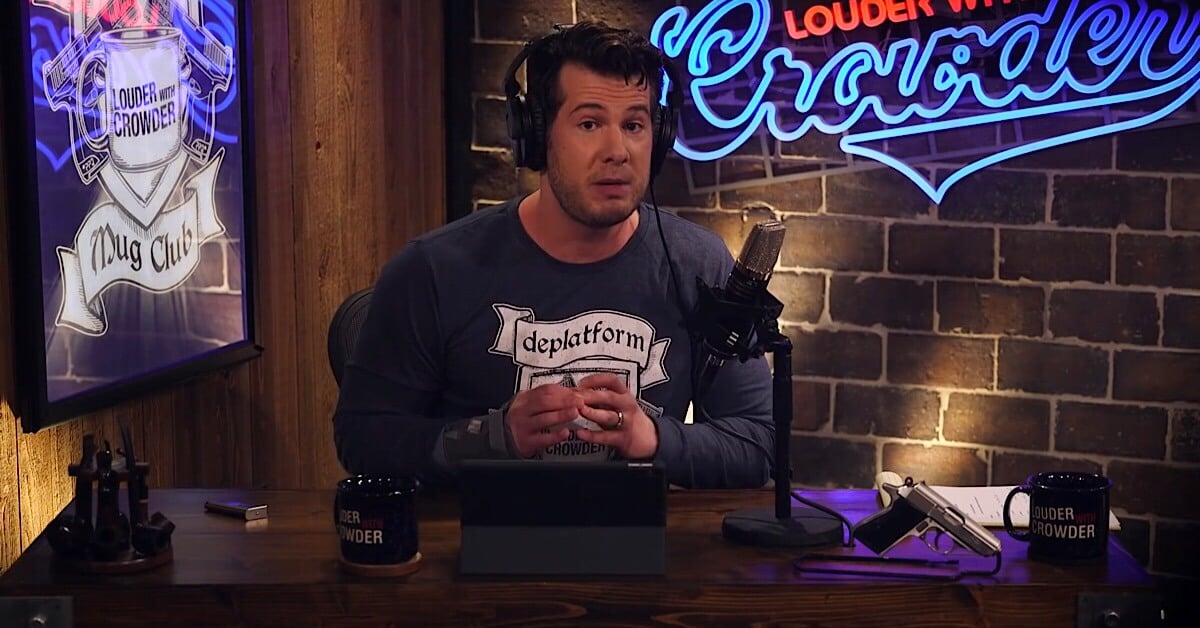
These bogus claims were filed under DMCA rules that are supposed to allow fair use, and Crowder argued that his content as a transformative work fell under the fair use principle. He also said the real reason the entertainment giants came after him by abusing YouTube’s broken copyright system was anti-competitive – simply to keep him off the platform.
Even when the issues were later rectified, it was days after the livestream and the damage was already done.
This system was further exploited later in the year to block President Trump’s “Nickelback Joe Biden meme” video, exploring a corruption scandal involving the former US Vice President in a humorous way. Those who disliked the meme decided to take it down using a questionable copyright claim, ignoring that parody is another example of fair use.
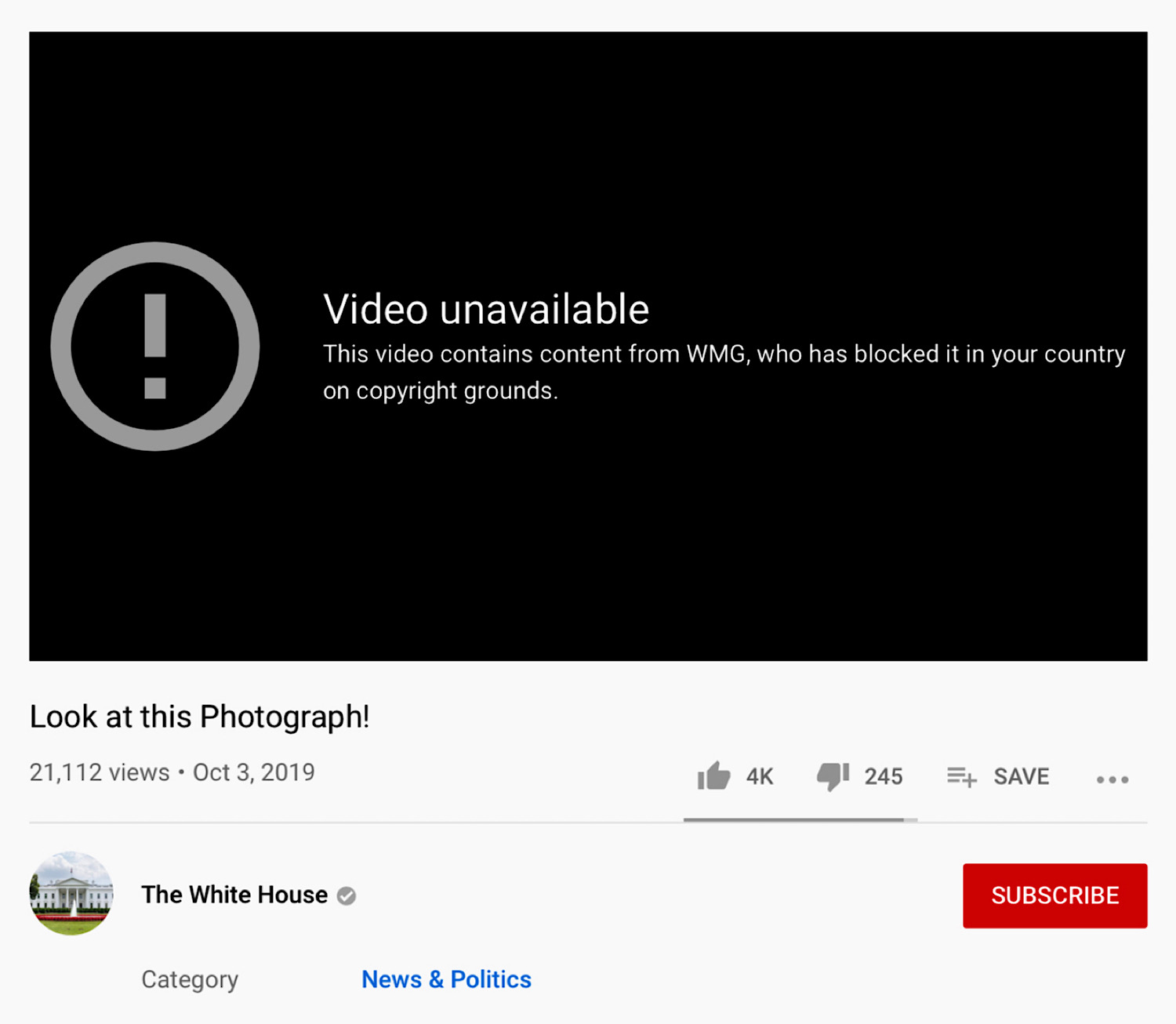
YouTube was even accused of violating DMCA law by the way it was managing copyright claims.
YouTube creator Mumbo Jumbo had his channel left crippled after Warner Chappell Music wrongfully filed 400+ copyright claims against his videos, and YouTube was little help.
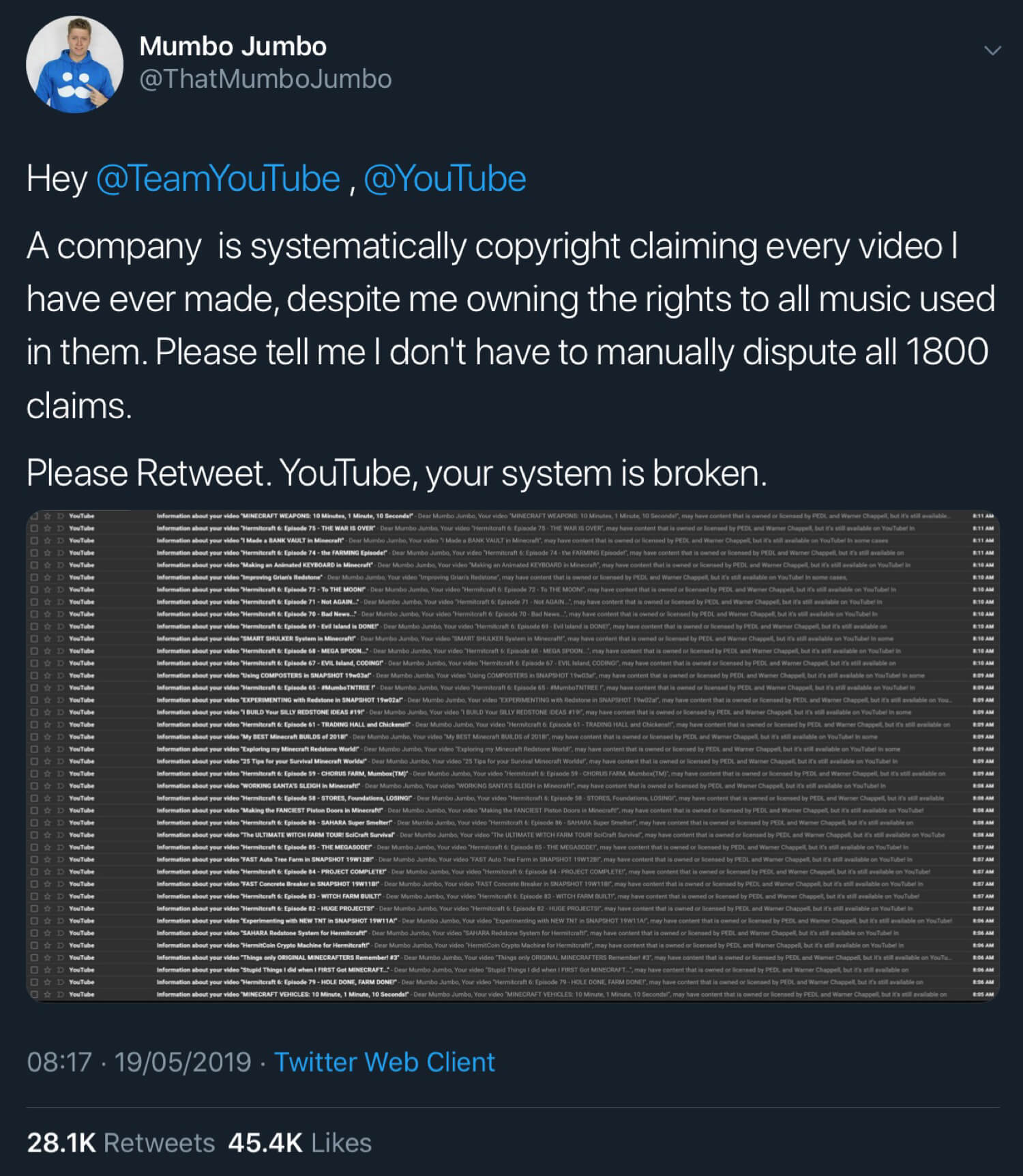
Alternatives, mavericks, and accusations
The search for viable alternatives to YouTube and its increasingly constraining playing field continued in 2019. These efforts focused on other platforms such as DLive, with whom PewDiePie established an exclusive partnership. Other platforms in this space include BitChute.
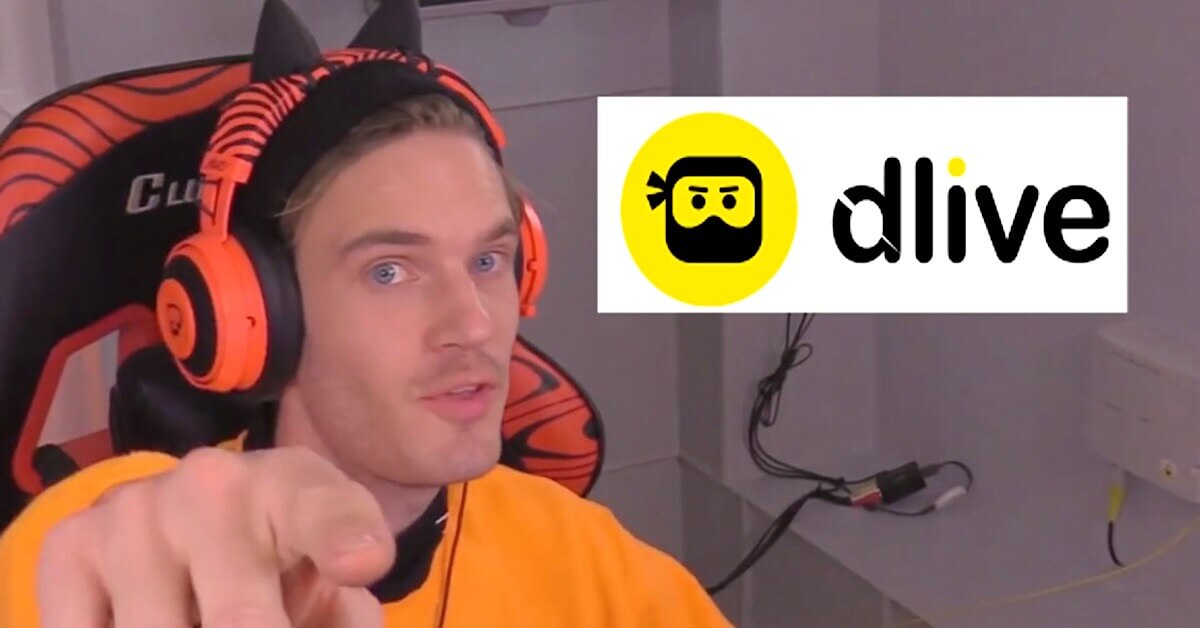
Meanwhile, in an unusual step for a modern Democrat, Congresswoman Tulsi Gabbard criticized Google on the issue of free speech stifling. This presidential candidate even sued Google for suspending her ad account after the Democratic debate in June. On the heels of this, it appeared that YouTube was suppressing her channel.
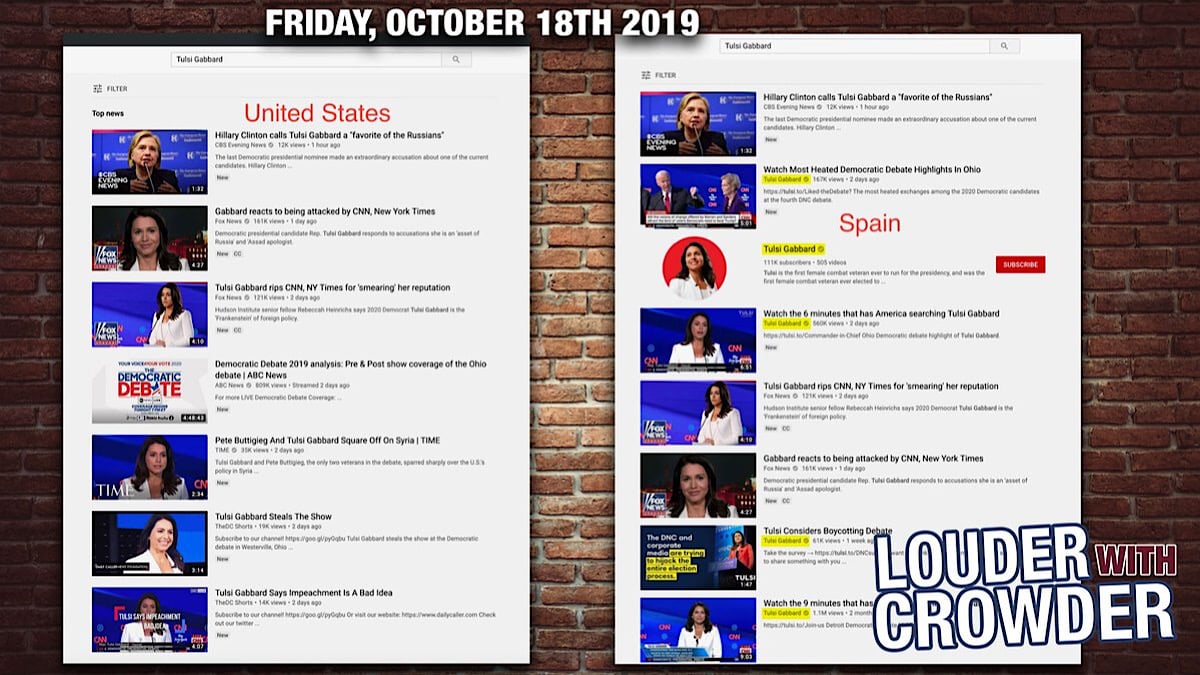
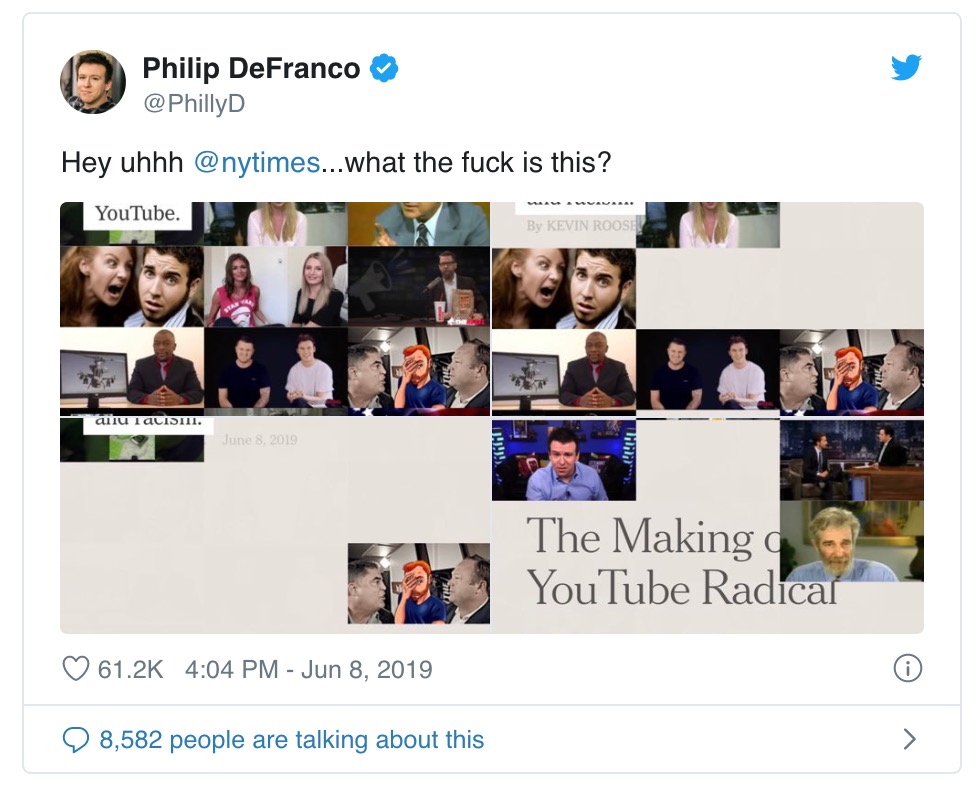
Media outlets this year didn’t hesitate to accuse YouTubers of representing the “alt-right” movement. Thus the New York times dubbed Philip DeFranco – who says he is socially liberal – as a YouTube radical, while the world’s most popular podcaster, Joe Rogan, was smeared as “a far right influencer” by Axios.

Leaks and biases
But creators were not the only ones to feel pressure and face serious accusations. Google and YouTube itself have also been put in the spotlight by a series of leaks published by Project Veritas shedding light on their inner workings and alleging a high degree of political and ideological bias.
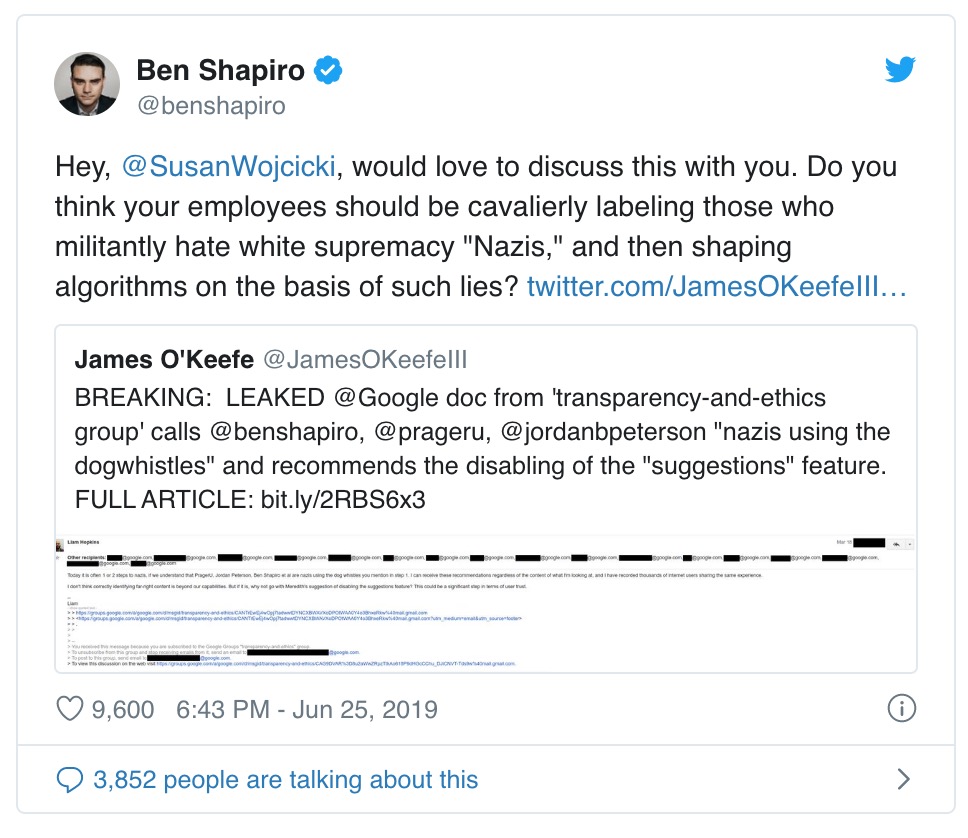
Among other things, YouTube was accused of exerting unfair influence by applying blacklists to block certain terms, such as those related to the 2018 Irish abortion referendum.
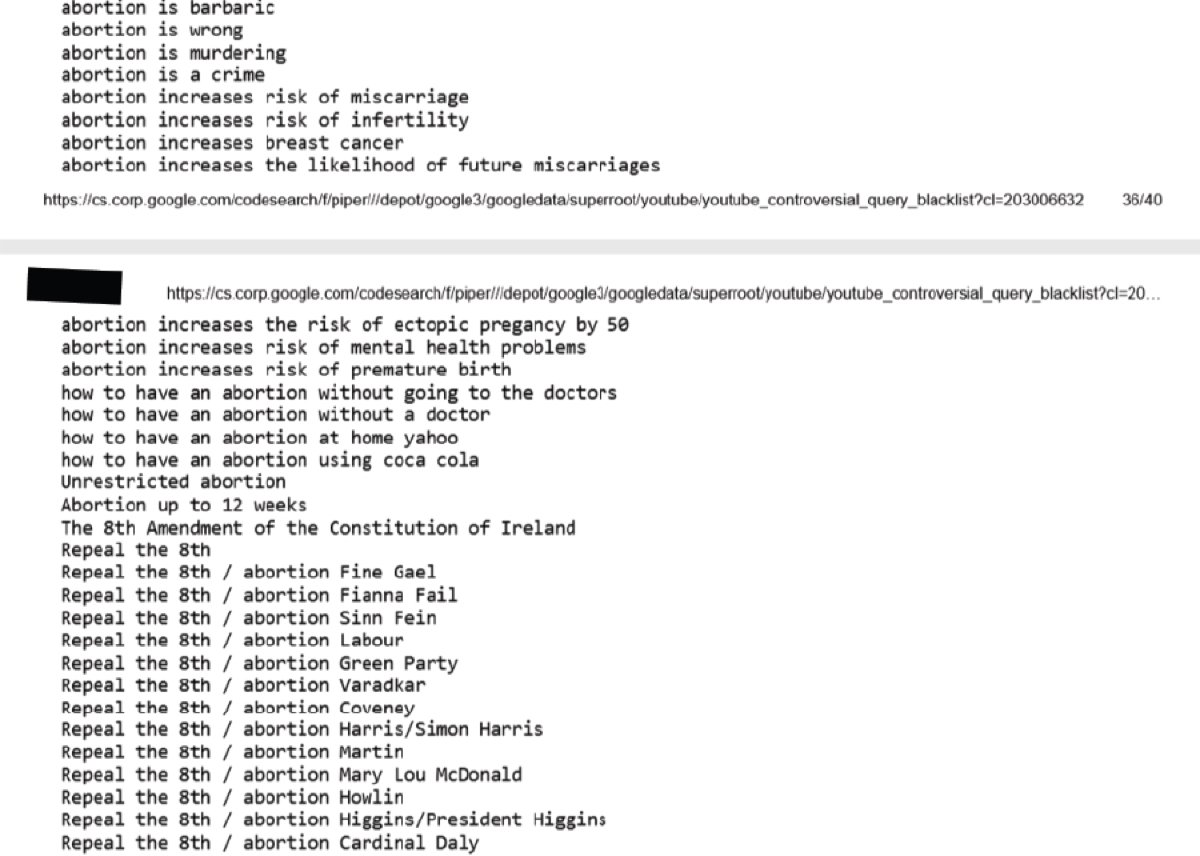
There have also been reports about YouTube’s throttling system that is used to suppress some YouTubers, but also promote others, such as the platform’s new focus: celebrities, and what it considers “authoritative sources.”
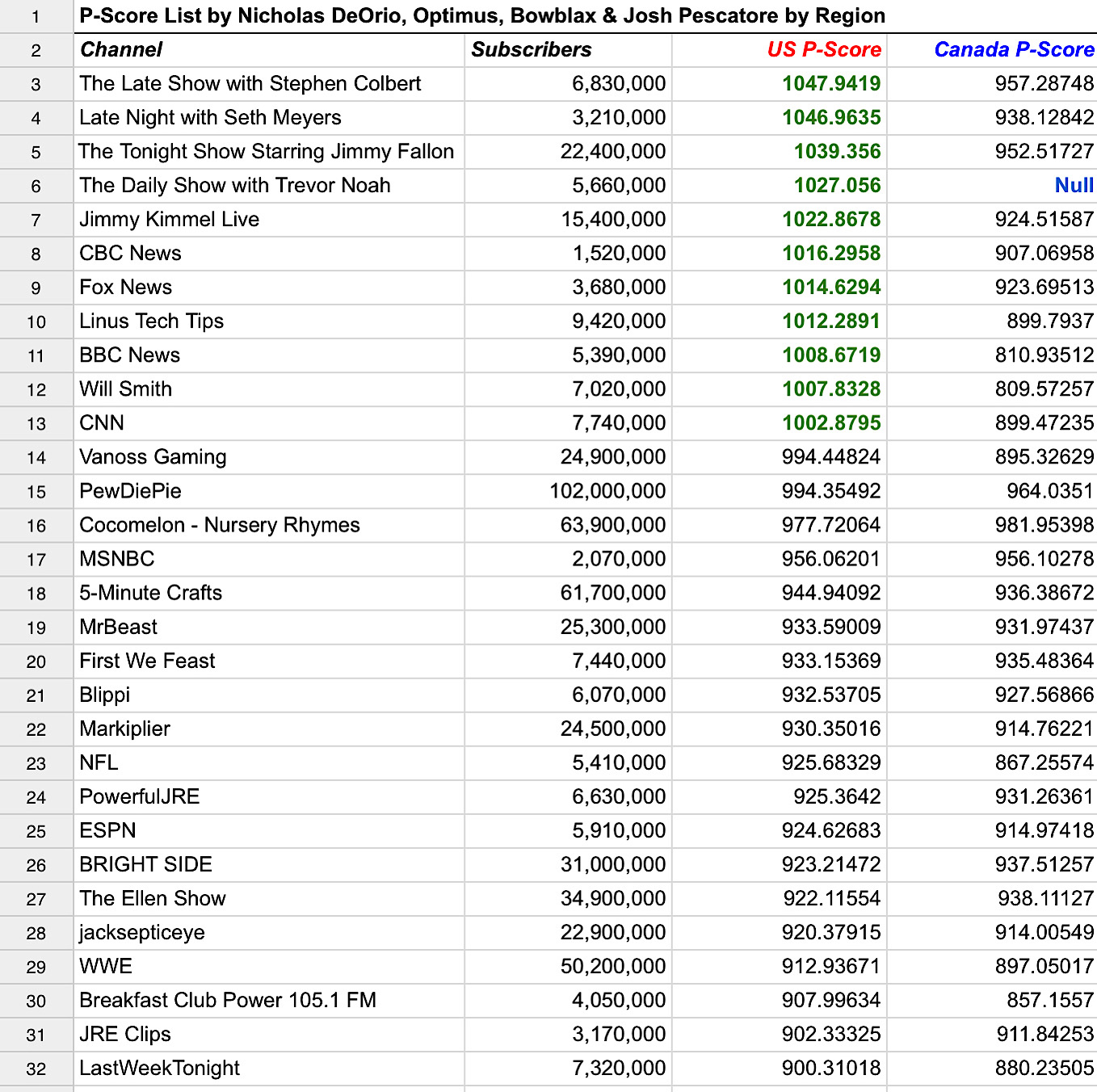
In July, Dennis Prager, a radio host who owns the PragerU YouTube channel and was suing Google for restricting it, was scheduled to speak before a US Senate committee hearing on the issue of the platform’s anti-conservative bias.
As if to confirm these accusations and suspicions, a leaked video surfaced in August showing YouTube CEO Susan Wojcicki saying that the company has “a whole system to separate trashy from authoritative news” – and it would appear, with YouTube deciding which is which. The YouTube CEO eventually admitted to the practice during a 60 Minutes interview.
Big controversies and mass demonetization
One of the biggest controversies to hit YouTube in 2019 involved Steven Crowder and Vox host and writer Carlos Maza. Crowder’s videos debunking Maza’s content were consistently the more popular of the two, and eventually, Maza accused the conservative comedian of his jokes veering into the “homophobic and racist” territory and being tantamount to harassment.
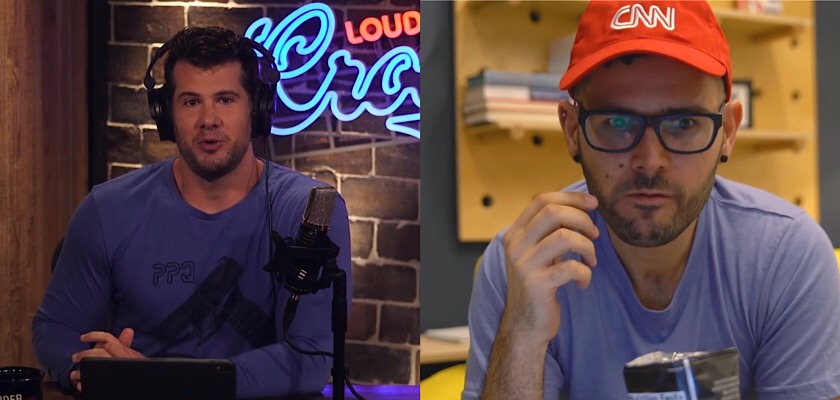
YouTube at first dismissed these claims, but later gave in to pressure from news media and announced it would demonetize Crowder for “harming the broader community” – even if he wasn’t found in breach of YouTube’s rules.
But YouTube’s reaction to all this was what actually ended up “harming the broader community” – as many other YouTubers got demonetized in what came to be known as VoxAdpocalypse.
The platform’s implementation of its hate speech rules led to further suppressing of channels and cutting off creators’ revenues, including those uninvolved in the ongoing political and ideological fracas in the United States that is spilling onto the social media.
Some of the victims included a popular history channel, The Great War and independent journalist Ford Fischer). Fischer’s work even featured on Vox, the media company that set in motion the latest demonetization wave on YouTube prompted by accusations of “hate speech.”
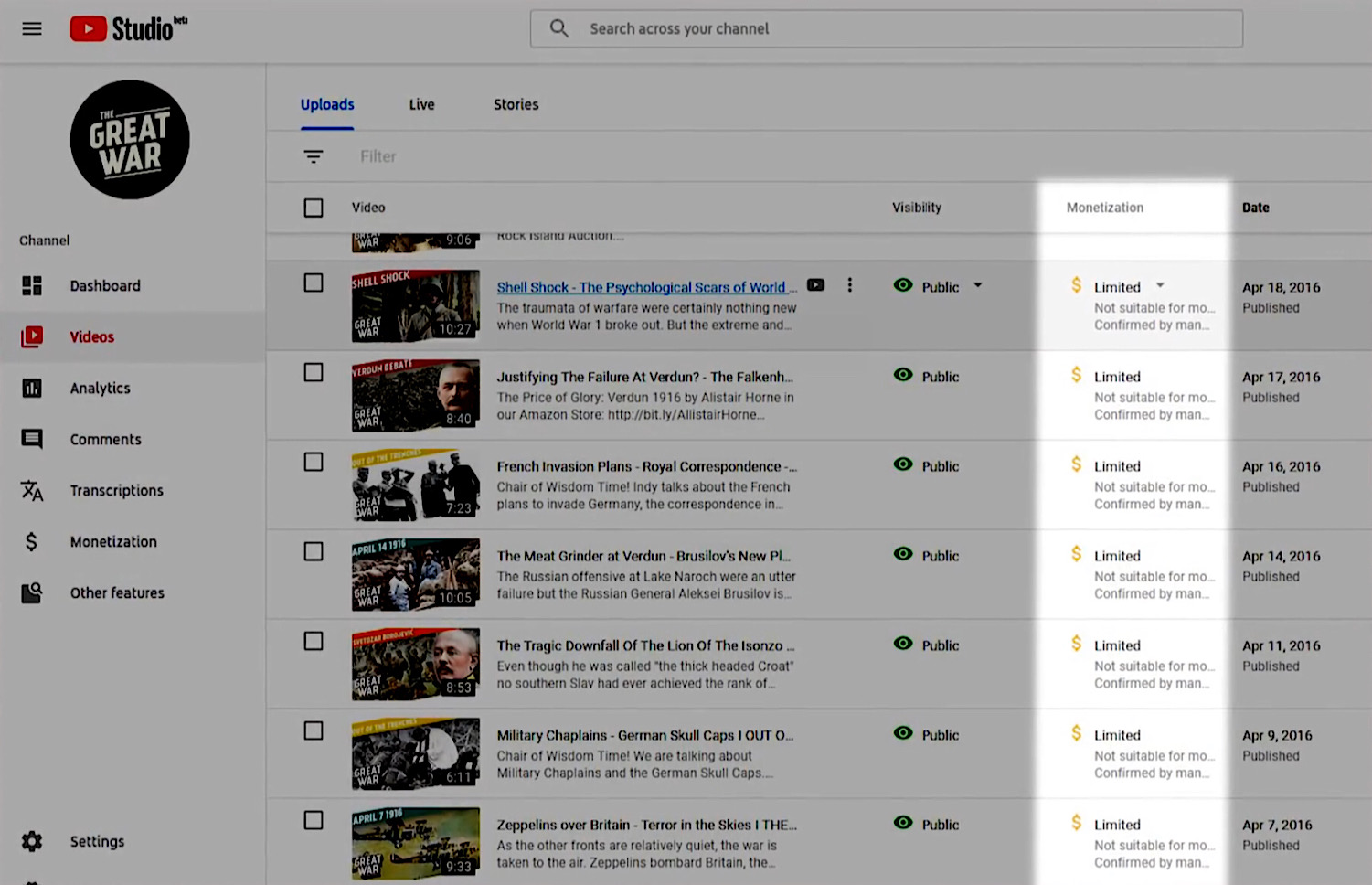
Even the SPLC, an organization often blamed for encouraging YouTube to censor YouTubers found itself harmed by the very YouTube changes it was calling for.
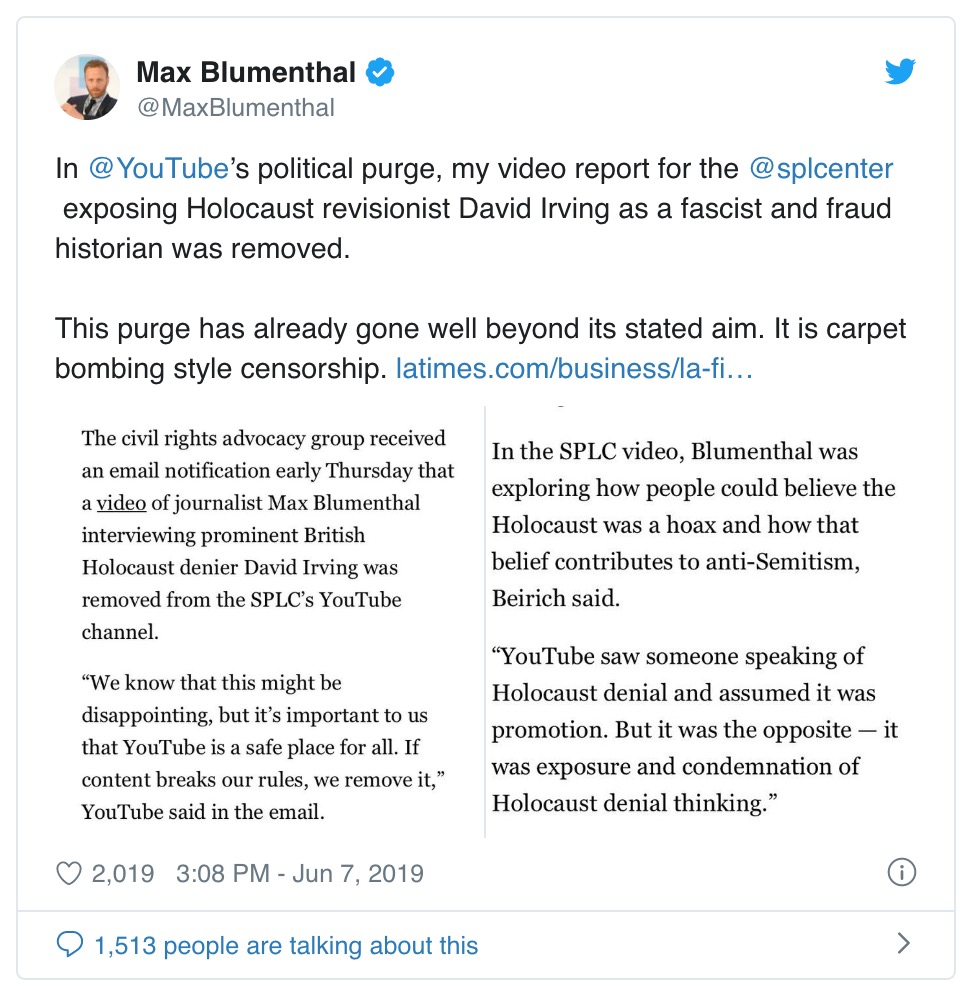
With their livelihoods threatened in this way, and never knowing when to expect another potentially disastrous, and poorly explained and justified decision by YouTube, content creators were getting more open to finding alternative platforms. However, the issue of YouTube’s dominance to the point of monopoly remains a problem yet to be solved.
Cozying up to celebrities as life gets harder for independents
As if to add insult to injury, YouTube this year started to signal that it was likely shifting focus from homegrown talent to celebrities and brands.
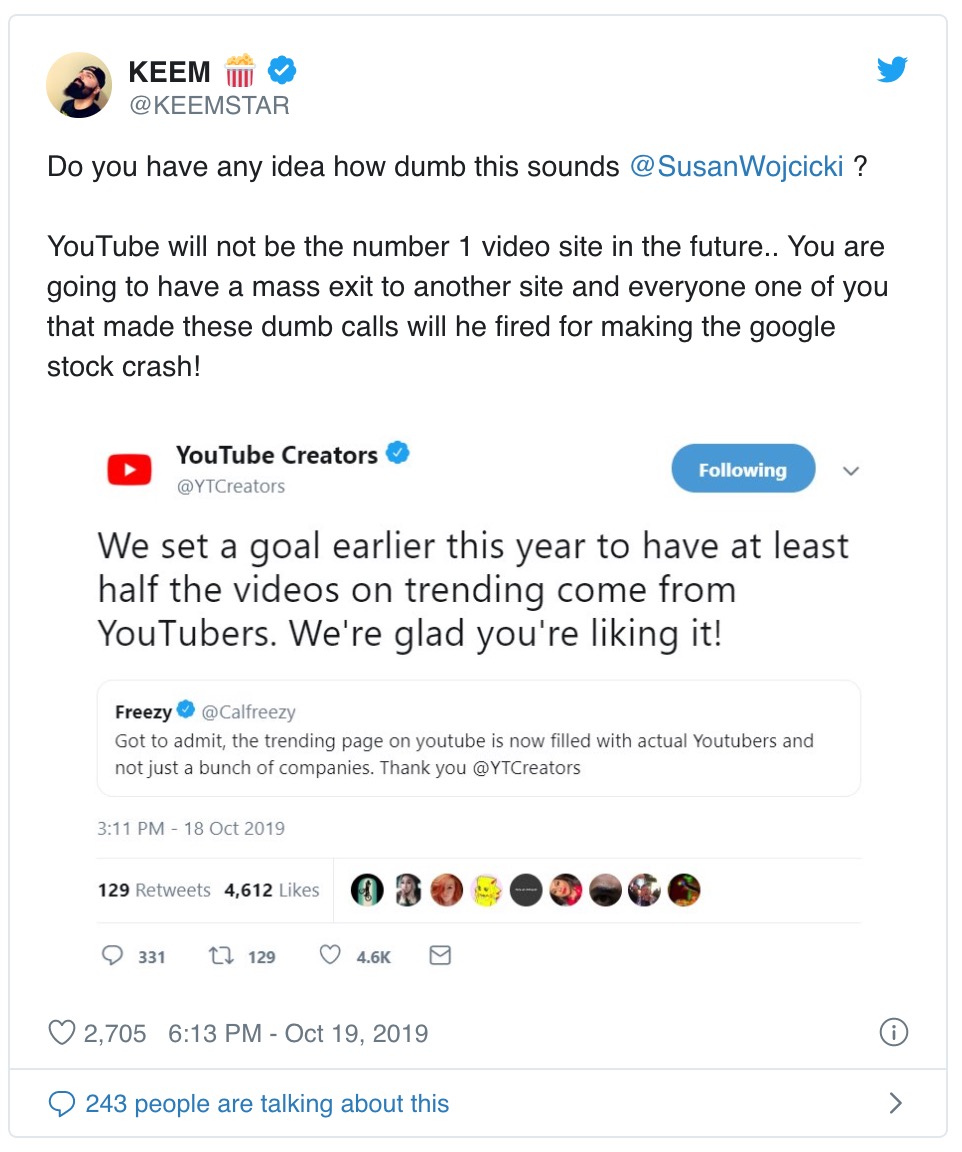
This is leaving the platform’s original talent worried about their status, as YouTube reportedly actively woos Hollywood and other traditional stars, incentivizing them with money and teaching them how to create content in the format basically invented for YouTube by independent creators.
This is born out by statistics that show a clear shift toward corporations – the top 100 most subscribed channels were 80 percent YouTube talent nine years ago. Now, that number has dwindled to just 28 percent.
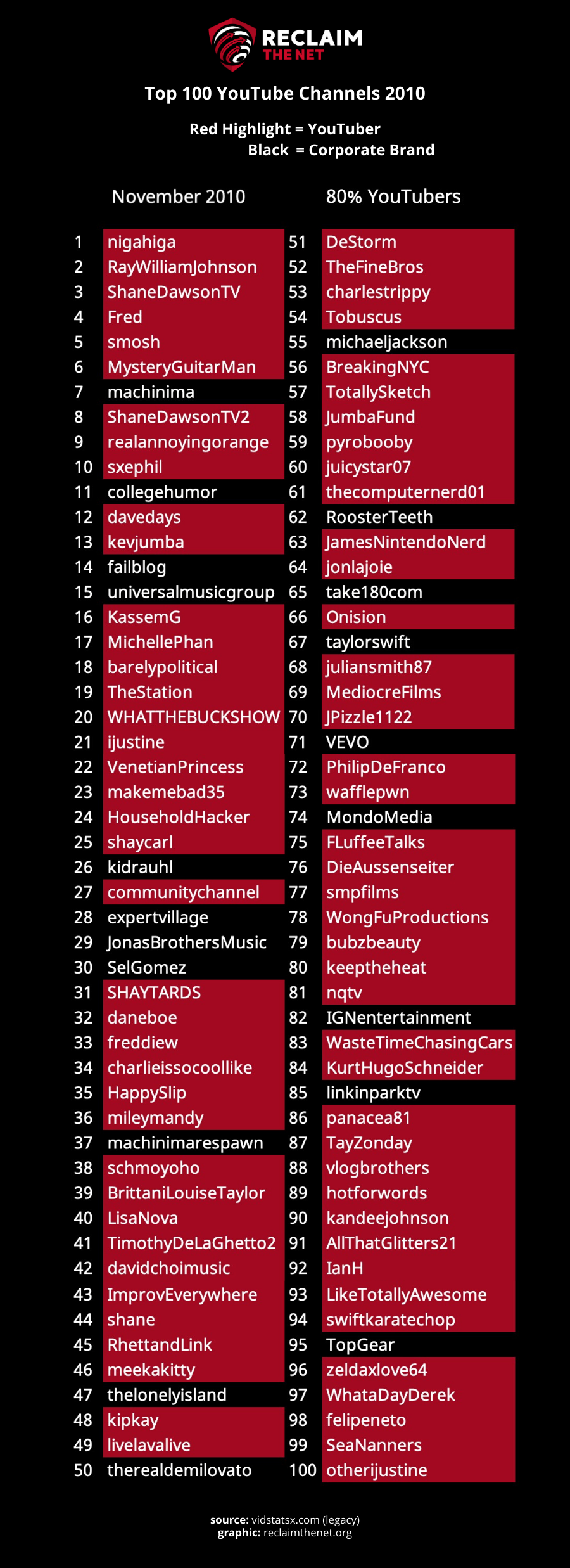
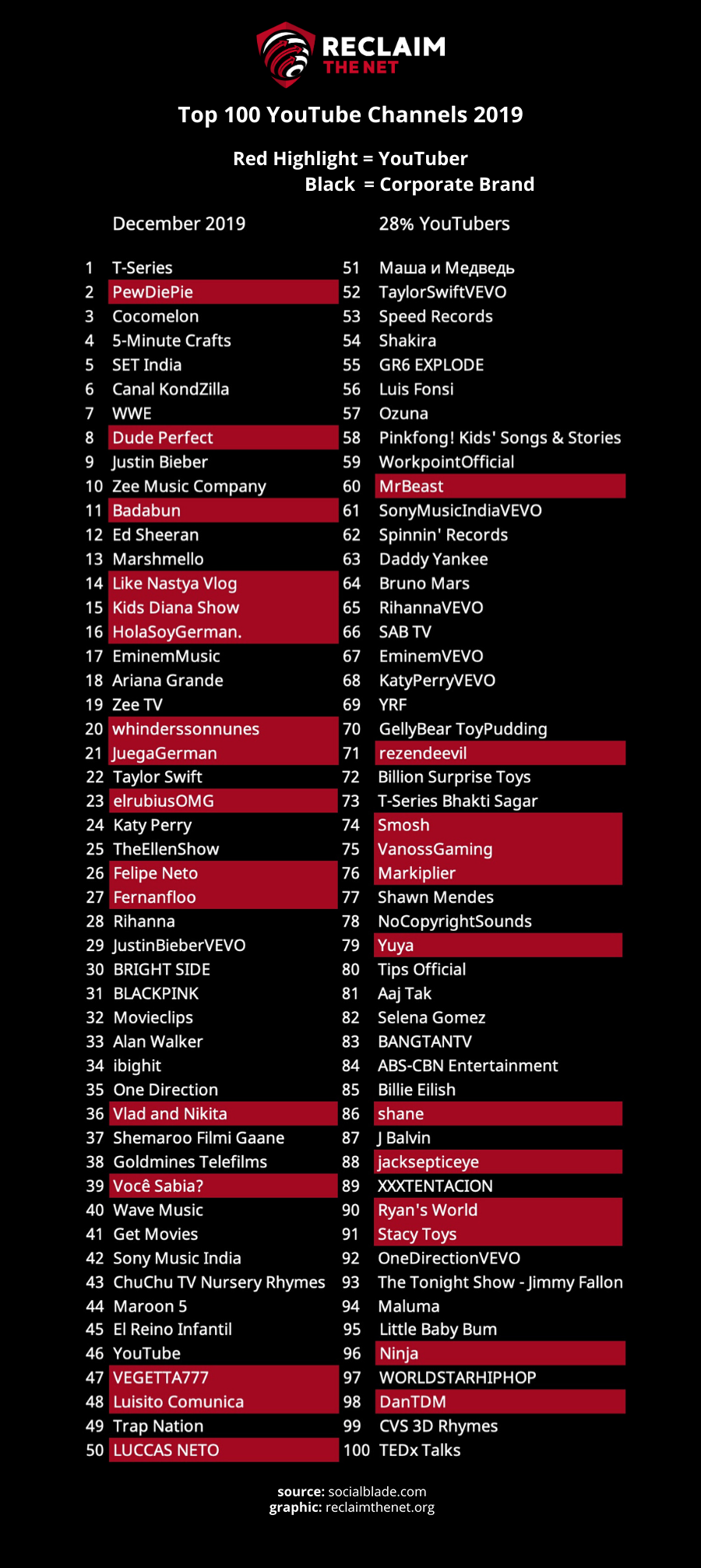
As a reflection of the overall political and media climate and an effect of the Crowder-Maza controversy earlier in the year, YouTube in December announced new rules that will punish even jokes if they are seen as insulting and harassing.
The new policy aims to protect regular citizens and public figures from mocking and language that goes “too far”.
Mainstream media are looking forward to this new, bland version of YouTube where people will likely be afraid to make a joke. Forbes put CEO Susan Wojcicki on its list of World’s Most Powerful Women of 2019 for an algorithm change favoring legacy “authoritative” sources over recommending YouTubers.
2019 ends with a set of more new rules to threaten YouTubers’ livelihoods in the new year – this time brought on by YouTube’s settlement with the FTC over Children’s Online Privacy Protection Act (COPPA) violations.
YouTube’s biggest star PewDiePie has been among the critics of this turn of events, explaining the harmful effect these rules are bound to have on creators.
As 2019 ends, many YouTube creators are checking their email app each morning to see if YouTube destroyed their livelihood overnight.

